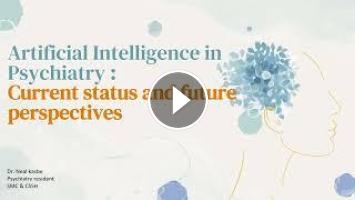Psychiatric disorders currently account for the most significant share of the global disease burden, with the COVID-19 pandemic exacerbating existing challenges. Artificial intelligence (AI) has emerged as a valuable tool in the early identification of diseases, the understanding of disease trajectories, and the development of novel treatments across both physical and mental health domains. This review offers a comprehensive examination of AI methodologies and their applications in various aspects, including data acquisition and processing, feature extraction and characterization, classification of psychiatric disorders, identification of potential biomarkers, real-time monitoring, and intervention strategies for psychiatric conditions. Additionally, we provide an extensive summary of AI applications related to the early warning, diagnosis, prognosis, and treatment of specific psychiatric disorders such as depression, schizophrenia, autism spectrum disorder, attention-deficit/hyperactivity disorder, addiction, sleep disorders, and Alzheimer’s disease. The benefits and limitations of AI in the field of psychiatry are discussed. We anticipate a surge of research opportunities aimed at enhancing AI technologies and exploring their long-term implications in psychiatry, particularly in the context of the ongoing and post-COVID-19 landscape.
#ai #arificial #intelligence #subhartiuniversity #subharti #psychiatry
#ai #arificial #intelligence #subhartiuniversity #subharti #psychiatry
- Category
- Artificial Intelligence
- Tags
- ai, artificial, intelligence












Comments